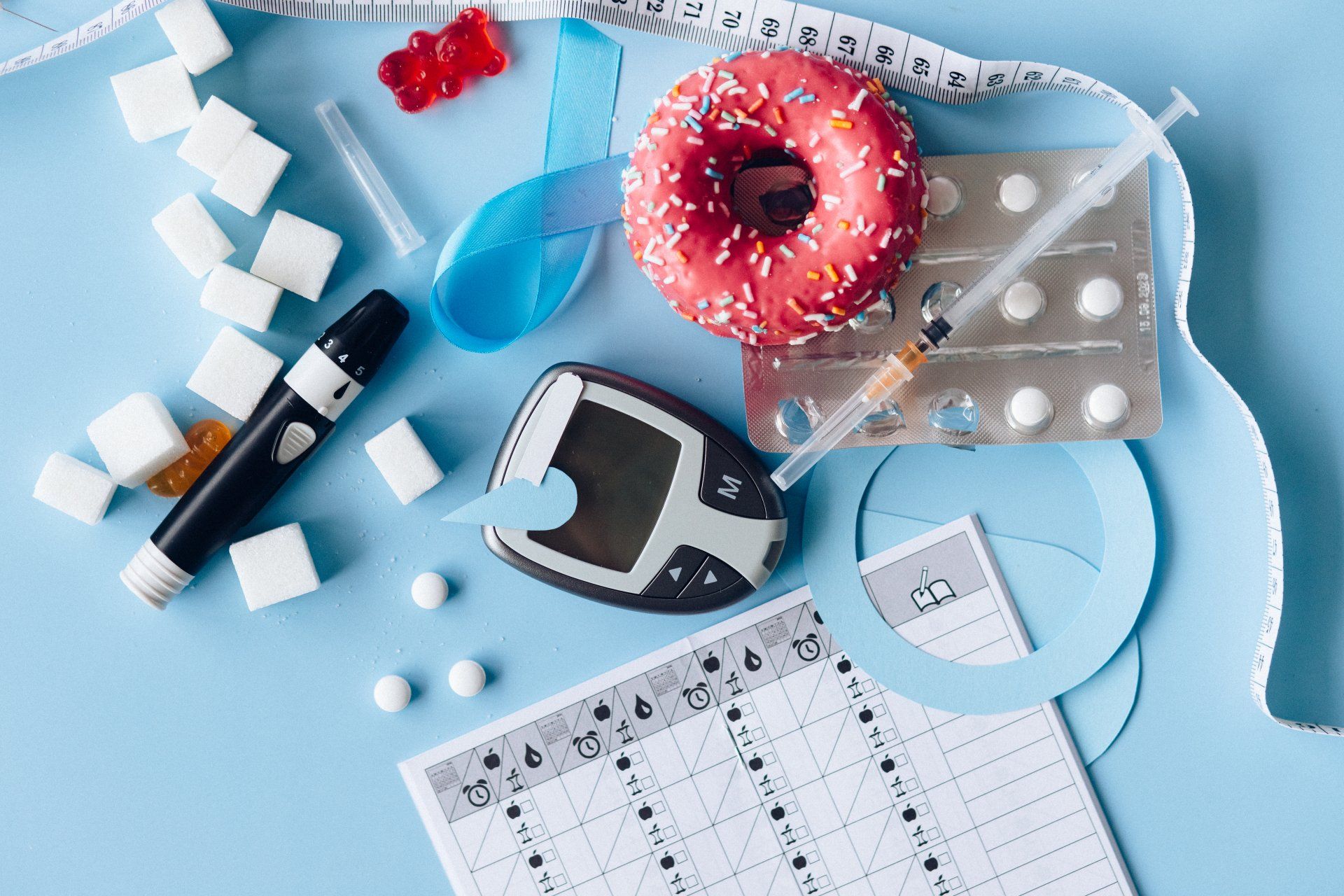Blog Layout
How Positive Thinking Can Improve Your Health
DJAB • January 21, 2021
POSITIVE THINKING - MIND - BODY - SOUL

Positive thinking: Stop negative self-talk to reduce stress
Is your glass half-empty or half-full? How you answer this age-old question about positive thinking may reflect your outlook on life, your attitude toward yourself, and whether you're optimistic or pessimistic — and it may even affect your health.
The positive thinking that usually comes with optimism is a key part of effective stress management. And effective stress management is associated with many health benefits. If you tend to be pessimistic, don't despair — you can learn positive thinking skills.
Understanding positive thinking and self-talk
Positive thinking doesn't mean that you keep your head in the sand and ignore life's less pleasant situations. Positive thinking just means that you approach unpleasantness in a more positive and productive way. You think the best is going to happen, not the worst.
Positive thinking often starts with self-talk. Self-talk is the endless stream of unspoken thoughts that run through your head. These automatic thoughts can be positive or negative. Some of your self-talk comes from logic and reason. Other self-talk may arise from misconceptions that you create because of lack of information.
If the thoughts that run through your head are mostly negative, your outlook on life is more likely pessimistic. If your thoughts are mostly positive, you're likely an optimist — someone who practices positive thinking.
The health benefits of positive thinking
Explore the effects of positive thinking and optimism on health. Health benefits that positive thinking may provide include:
- Increased life span
- Lower rates of depression
- Lower levels of distress
- Greater resistance to the common cold
- Better psychological and physical well-being
- Better cardiovascular health and reduced risk of death from cardiovascular disease
- Better coping skills during hardships and times of stress
- It's unclear why people who engage in positive thinking experience these health benefits. One theory is that having a positive outlook enables you to cope better with stressful situations, which reduces the harmful health effects of stress on your body.
It's also thought that positive and optimistic people tend to live healthier lifestyles — they get more physical activity, follow a healthier diet, and don't smoke or drink alcohol in excess.
Identifying negative thinking
Not sure if your self-talk is positive or negative? Some common forms of negative self-talk include:
Filtering.
You magnify the negative aspects of a situation and filter out all of the positive ones. For example, you had a great day at work. You completed your tasks ahead of time and were complimented for doing a speedy and thorough job. That evening, you focus only on your plan to do even more tasks and forget about the compliments you received.
Personalizing.
When something bad occurs, you automatically blame yourself. For example, you hear that an evening out with friends is canceled, and you assume that the change in plans is because no one wanted to be around you.
Catastrophizing.
You automatically anticipate the worst. The drive-through coffee shop gets your order wrong and you automatically think that the rest of your day will be a disaster.
Polarizing.
You see things only as either good or bad. There is no middle ground. You feel that you have to be perfect or you're a total failure.
Focusing on positive thinking
You can learn to turn negative thinking into positive thinking. The process is simple, but it does take time and practice — you're creating a new habit, after all. Here are some ways to think and behave in a more positive and optimistic way:
Identify areas to change.
If you want to become more optimistic and engage in more positive thinking, first identify areas of your life that you usually think negatively about, whether it's work, your daily commute or a relationship. You can start small by focusing on one area to approach in a more positive way.
Check yourself.
Periodically during the day, stop and evaluate what you're thinking. If you find that your thoughts are mainly negative, try to find a way to put a positive spin on them.
Be open to humor.
Give yourself permission to smile or laugh, especially during difficult times. Seek humor in everyday happenings. When you can laugh at life, you feel less stressed.
Follow a healthy lifestyle.
Aim to exercise for about 30 minutes on most days of the week. You can also break it up into 10-minute chunks of time during the day. Exercise can positively affect mood and reduce stress. Follow a healthy diet to fuel your mind and body. And learn techniques to manage stress.
Surround yourself with positive people.
Make sure those in your life are positive, supportive people you can depend on to give helpful advice and feedback. Negative people may increase your stress level and make you doubt your ability to manage stress in healthy ways.
Practice positive self-talk.
Start by following one simple rule: Don't say anything to yourself that you wouldn't say to anyone else. Be gentle and encouraging with yourself. If a negative thought enters your mind, evaluate it rationally and respond with affirmations of what is good about you. Think about things you're thankful for in your life.
Change your mind, change your life.
POSITIVE THINKING CAN IMPROVE PHYSICAL HEALTH:
CAN IMPROVE THE IMMUNE SYSTEM.
With recent events worldwide, current medical research has focused on ways the immune system functions and can be improved. In a similar effect, psychological studies show that people recover from illnesses such as flu and colds faster and are less symptomatic than compared with people who have a more negative thought process.
CAN DECREASE BLOOD PRESSURE.
By having more positive thinking, stress becomes less of a factor in your life. As a result, all of those negative side effects from stress also become irrelevant. Heart disease, high blood pressure, and other heart-related effects will become less significant if not eliminated completely. It’s not just a state of mind, but positive thinking can literally save your life.
CAN INCREASE RESILIENCE.
People who have positive thoughts also have better coping skills. As a result, they are better at healing after a medical setback. Not only is the immune system improved as mentioned, but healing after surgical procedures, fractures, and other acute injuries have been shown to be faster than negative counterparts.
CONTRIBUTES TO LONGEVITY.
On average, people with the power of positive thinking average a lifespan of 10 years longer than those with negative thoughts. This is due to a culmination of all of these physical benefits that allow you to enjoy improved health and physical function longer into your golden years.
CAN INCREASE PAIN TOLERANCE.
Nobody wants to have to tolerate pain, but there are times where you might not have a choice. Let’s say you overdo it on that new workout fad and you wake up barely able to move. With positive thinking, your mindset reduces the focus on pain and discomfort.
CAN IMPROVE SOCIAL HEALTH:
Social perception of people is so important in today’s world of social media where “image is everything”. If you are perceived as positive, society will place a higher value and level of respect on your decisions, opinions, and overall level of interaction. Whether you are working in a corporation or business for sales or you are an individual striving to make your mark on the world, here’s how positive thinking can help you do that:
CONTRIBUTES TO LEADERSHIP SKILLS.
People who have more positive thoughts are more likely to be hired for jobs in a leadership position. Similarly, people with more positive thoughts are more likely to be promoted to a leadership position. Studies show that positive people are more likely to be followed by employees. Another example is that salespeople who are positive have more sales than those who are perceived as negative.
POSITIVE THINKERS ENJOY LIFE MORE.
People who have more positive thoughts have an overall better love for life. They are often more socially outgoing, interacting with people and their community, and enjoying their environment and surroundings to the fullest.
INCREASES SELF-ESTEEM.
Self-esteem is a natural by-product of positive thinking. If you think positively, then you will have more confidence in yourself and in the situation you are in. And, again, people are attracted to people with a healthy dose of self-esteem. Just make sure to keep your self-esteem in check before it turns into arrogance and you lose those people you lead.
HELPS CREATE HEALTHIER RELATIONSHIPS.
Relationships are perhaps the most difficult thing in life for many people to master. But studies show that people with a positive outlook not only find their perfect partner but stay married longer. You can also put those interpersonal skills to good use in the workplace by forging positive relationships with coworkers and potential clients.
PRODUCES BETTER HABITS.
With positive thinking comes more social awareness and better-coping skills. People make better decisions with such things as drinking, exercising, and eating better. They are more socially aware of their actions and how they are perceived. They are less likely to give in to social pressures that aren’t good for them. Their decision-making skills are more detailed and objective and geared to a better overall outcome for everyone involved.
Practicing positive thinking every day
If you tend to have a negative outlook, don't expect to become an optimist overnight. But with practice, eventually your self-talk will contain less self-criticism and more self-acceptance. You may also become less critical of the world around you.
When your state of mind is generally optimistic, you're better able to handle everyday stress in a more constructive way. That ability may contribute to the widely observed health benefits of positive thinking.
Thank you for your support in reading and sharing this and hopefully, you have found it beneficial.
"Providing Better Health Through Knowledge"

Slide title
Write your caption hereButton
Slide title
Write your caption hereButton
Slide title
Write your caption hereButton
Slide title
Write your caption hereButton
Slide title
Write your caption hereButton
Slide title
Write your caption hereButton
Slide title
Write your caption hereButton
Slide title
Write your caption hereButton

By DJAB
•
April 8, 2022
Glutathione - Collagen - L-Carnitine - Vitamin C
Four ingredients when taken alone can certainly support the body and provide added benefits. However, combined them together and you definitely will have the opportunity to not only feel, but see improvements.
Knowledge is like adding another book to your library.
“People Helping People in Health and Wellness”

By DJAB
•
January 9, 2022
Why Detoxing is Beneficial.
Detoxification — or detox — is a popular buzzword.
It typically implies following a specific diet or using special products that claim to rid your body of toxins, thereby improving health and promoting weight loss.
Fortunately, your body is well-equipped to eliminate toxins and doesn’t require special diets or expensive supplements to do so.
That said, you can enhance your body’s natural detoxification system.
Thank you for your support in reading this article and hopefully, you have found it beneficial.
"Providing Better Health Through Knowledge"

By DJAB
•
November 24, 2021
Many people rely on quick, processed foods for meals and snacks. Since these products often contain added sugar, it makes up a large proportion of their daily calorie intake.
In the US, added sugars account for up to 17% of the total calorie intake of adults and up to 14% for children.
Dietary guidelines suggest limiting calories from added sugar to less than 10% per day.
It is believed that sugar consumption is a major cause of obesity and many chronic diseases, such as type 2 diabetes.
Here are some reasons why eating too much sugar is bad for your health.
Thank you for your support in reading this article and hopefully, you have found it beneficial.
"Providing Better Health Through Knowledge"
Disclaimer: All content and media on this website is created and published online for informational purposes only. It is not intended to be a substitute for professional medical advice and should not be relied on as health or personal advice.
Always seek the guidance of your doctor or other qualified health professional with any questions you may have regarding your health or a medical condition. Never disregard the advice of a medical professional, or delay in seeking it because of something you have read on this website.
"Copyright 2021. Dr. Joseph Ahrens and Logo are trademarks of Dr. Joseph Ahrens LLC. All rights reserved."
